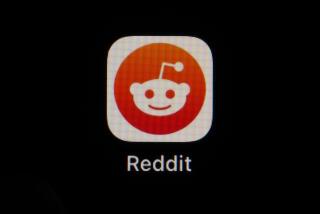Web Auction IPOs Challenge Wall Street
- Share via
NEW YORK — The Internet, which has already shaken the securities industry to its roots, is mounting a new challenge to Wall Street’s century-old underwriting process.
Fledging investment bank W.R. Hambrecht & Co. plans to take companies public via the Internet, using an auction process designed to put small investors on an equal footing with big institutions.
The San Francisco firm, founded a year ago by William Hambrecht, former chairman of investment bank Hambrecht & Quist Group, is kicking off its OpenIPO service with a million-share initial public offering by Sonoma-based winemaker Ravenswood Winery Inc.
Under a modified “Dutch auction” process, the shares will be distributed to the highest bidders, but at a single price--the amount of the lowest winning bid that results in all of the shares being sold.
The auction process is aimed at eliminating two aspects of IPOs that have long troubled many investors and stock issuers.
First, with a standard IPO the issuing company receives only the amount of the offering price for its shares, as set by the underwriting brokerage.
Although the underwriter is supposed to determine a “fair” price for the stock based on the company’s history and outlook, that price may be significantly less than what the market overall is willing to pay for the shares--which is why IPOs often soar once the stocks begin trading.
Second, shares of hot issues can be hard to come by and often are distributed to favored clients of the investment bank handling the offering, a practice known as “spinning.”
But under the planned auction system, “your allocation is not based on who you know, but on what you are willing to pay,” according to promotional literature at the W.R. Hambrecht Internet site, https://www.openipo.com.
Hambrecht, in a telephone interview Monday, said auctions should not only raise more money for the issuing firms but put stock into the hands of long-term investors rather than “flippers”--speculators who are interested only in a quick profit.
Just as computer experts often favor technology stocks, each company has a natural constituency of investors, Hambrecht said. But under the current IPO system, “the economics of the offering tend to preclude those buyers from getting shares.”
In a simplified example of how the process will work, let’s say a firm wants to sell 100 shares and gets five bids, all of which would be secret until the auction ended: one offering to pay $10 apiece for 10 shares, one offering $9 apiece for 30 shares, one offering $8 for 60 shares, one offering $8 for 40 shares and one offering $7 for 80 shares.
The offering price would be $8 because that is the highest price at which all 100 shares could be sold. The two highest bidders would get all the shares they asked for, totaling 40 shares. The next two bidders would split the remaining 60 shares in proportion to the amounts they asked for--36 and 24 each.
The lowest bidder would get nothing.
After the offering, the stock would begin trading in its chosen market (Nasdaq, or one of the exchanges) just as standard IPOs do. A big difference, in theory, would be that the stock price probably wouldn’t rocket once trading begins, because the IPO price would have been closer to the price that the hungriest investors were willing to pay the company.
But will Hambrecht’s plan work in practice?
USC economist Lawrence Harris said that after the novelty of the approach wears off, little-known companies may fare poorly in such auction IPOs because they won’t attract the attention and support of underwriters’ research analysts.
One benefit of using a traditional underwriter is that the underwriter, with its army of analysts and traders, is supposed to be ready to talk up the stock with investors in the months after the offering.
Hambrecht’s firm will not have a traditional research department but will offer computer-driven stock analysis plus market research purchased from an outside firm.
Thomas H. Lee, founder of the Boston-based buyout firm Thomas H. Lee & Co., said in an interview that while “aftermarket support” for auction IPOs is a question mark, the idea must be taken seriously because of Hambrecht’s reputation as an innovator.
“More of the world is coming online,” Lee said. “Maybe you’re going to get a bloody nose the first time, but you’ve got to be there.”
The Ravenswood stock auction began Monday and is scheduled to end March 22, when the bidding results would be revealed. But Hambrecht cautioned that the date is subject to change.
More to Read
Inside the business of entertainment
The Wide Shot brings you news, analysis and insights on everything from streaming wars to production — and what it all means for the future.
You may occasionally receive promotional content from the Los Angeles Times.









